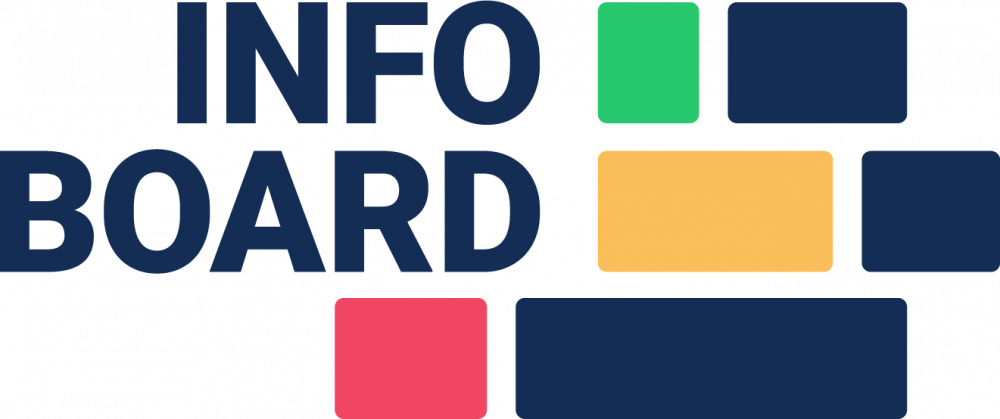infoBoard pursues a big goal
A company positions itself on the market and grows thanks to more orders and more employees, more machinery, more products, more simultaneous orders, bigger projects with more participants etc..
Management functions are needed so that each of them is in charge of a sector.
These management functions are normally carried out by Excel charts or Excel lists that work as software tools in order to live up to the resposanbility.
People meet to be better coordinated because without information from the other departments the planning of order production cannot work.
Information about changes at the right time are always kept secret for a few days.
What could be worse than making decisions based on bad information?
But there is a reason if people continue to do this even though they have the opportunity of a forward looking, joint planning.
Therefore, we are often contacted by new hired production managers or assembly supervisors who want to improve operations and results without software support.They quickly realize that the information situation is poor, the paperwork is a lot, the maintenance of the Excel spreadsheets is simply impossible.
Here we are dealing with people who want to make a difference. They meditate, they search on the internet and find infoBoard.
On vacation I read a book about fast and slow thinking. Researchers for centuries have grappled with the question of why people make wrong decisions. In the course of time, people have “agreed” on two schools of thought, in order to explain the origins of wrong decisions.
According to school 1, the life-based decisions are made depending on wether the situation is good or bad. According to school 2, the cognitive functions of “questioning” are rendered reflecting, researching, calculating. People think rationally and possibly also in an intelligent way.
And because people are lazy, and the slow thinking in school 2 is an effort, they are happy with the result of school 1. Considering the concept of “wrong” within a business context the probability of making mistakes is “high” and their impact “very expensive”.
This is the reason why the desire for reference clients of the same economic sector is understandable. School 1 says: don’t ponder.
It is difficult to persuade a new customer to agree to be named as reference customer of a trade fair. Reason: We don’t want to openly communicate this competitive edge to our market competitors. Guess which school of thought (School 1 or School 2) this company has followed?
While making this quick decision not all information is obtained and evaluated. From this point of view too, infoBoard ensures a verification of further conditions through the intuitive use of “school 1′ system”, thereby preventing the rationality and intelligence of “System 2” from falling behind.
Connections, deadline monitoring “above all” and priorities are kept monitored.
But now the main goal is to process the company’s orders in an optimal way. In the project business, tasks are estimated on a more global basis while time frames are based on assumptions. Here it should be like that: that is the goal, considering it we visualize the tasks and we visualize the actually worked hours for each task. And besides that, we still need an estimation on whether the work done has the value expected (earned value analysis), whether the increase of working hours also corresponds to the fullfilment of the task, or more precisely the percentage of completion.
And if no working hours are counted: is the colleague even there?
When we represent the main goal as a beam / timeline, we present the many tasks as timelines underneath it, draw for these tasks the time actually spent on them, addditionally also the processing time and the planned net working time as a bar, then we can visually track how well the project is being pursued.
infoBoard Europe started by networking established systems in such a way that new impressions on the efficiency of the company could emerge and be assessed. Sometimes it hurts to see what is actually going on. But there is an unbelievable motivation to put down organisational deficits, to conduct appraisal interviews and to achieve better results in favor of all stakeholders.
We insert all data onto the planning board from CRM and ticket systems .
We make “to-do-tasks” and reminders visible and compare them with the “get-things-done” from the systems, sort the programming tasks from the ticket system, measure the time required, learn about the actual cost among the frightening expenses, deliver solutions to the customer as soon as possible. We will evaluate further results and optimize our systems.
